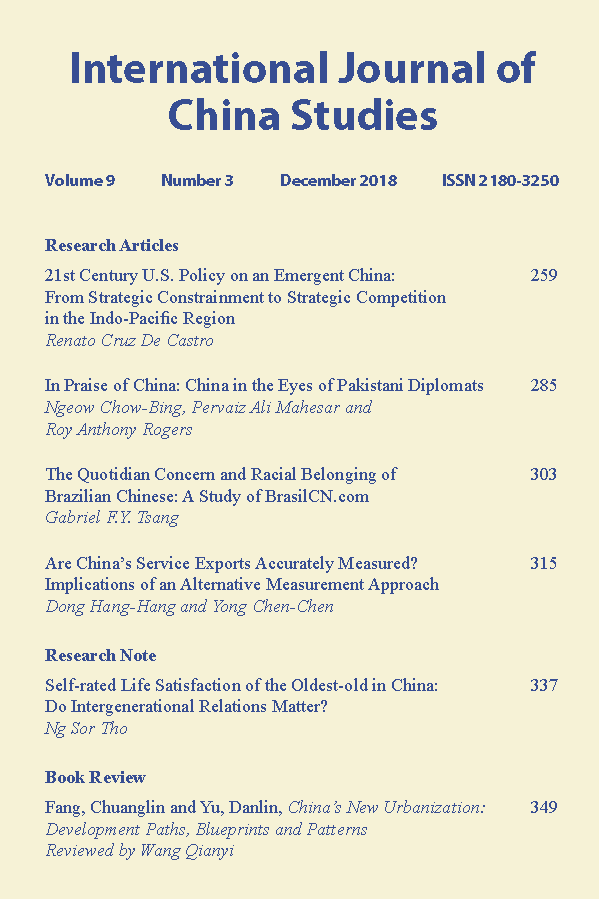Self-rated Life Satisfaction of the Oldest-old in China: Do Intergenerational Relations Matter?
Keywords:
Intergenerational relations; oldest-old; life satisfaction; intergenerational transferAbstract
In 2010, China had a 21 million population of age 80 or over. This group of oldest-old adults deserves attention on their quality of life as long as the improvement on life expectancy is expected to continue. Thus, more and more people in China will move into this group. This paper examines the effects of intergenerational relations on the self-rated life satisfaction of the oldestold in China by using the 2012 Chinese Longitudinal Healthy Longevity Survey data, a total of 6,530 respondents aged 80 or over. The dependent variable is from the responses of respondents on how do they rate their life. Various socio-demographic and health variables are included in the model
as controlled variables. Intergenerational relations variables include living arrangement, family interactions and intergenerational transfer. Results from the SPSS GENLIN ordinal regression model showed that living arrangements and intergenerational transfers were statistically significant in affecting the self-rated life satisfaction after controlling for socio-demographic and health variables, while family interactions in terms of visited and/or contacted by children was not significant. The feeling of being cared for among those who lived with family members and interdependence between generations have a positive effect on self-rated life satisfaction. The traditional role of family in supporting the older persons continued to be an important contributor to the self-rated life satisfaction. With the exodus of the young to the cities, family care and support are likely to be eroding in the future. Hence, there is a need to enhance community support for the oldest-old .

